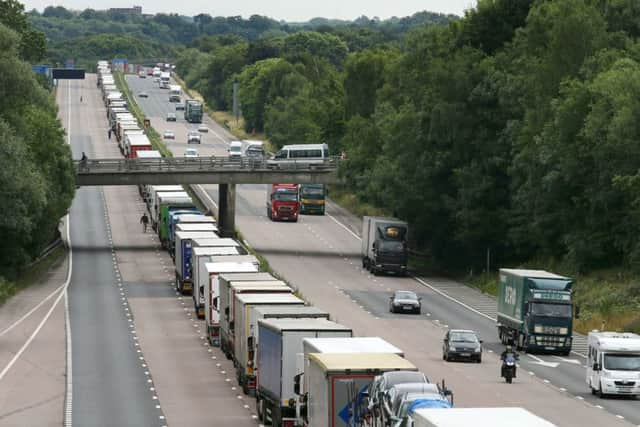Alan Gilfillan: Legal consequences of a no-deal Brexit


Goods: In the event of no-deal, the UK ceases to be a member of the EU single market and customs union. Fundamental principles guaranteeing free movement of goods, services, capital and people between the UK and remaining EU member states will no longer apply. Additional requirements on the import/export of goods might cause delays at ports and supply chain issues. The government has offered reassurances about adequate food supplies, but some manufacturers are known to be stockpiling. Frozen and non-perishable goods can be stored for extended periods, but it will be harder for businesses reliant on fresh produce.
Customs duties will apply on UK exports to the EU, an anticipated 3 per cent on average, but significantly higher for some products, such as beverages and confectionery. The UK will decide what levels of duty to apply on goods coming into the UK. The UK could strike a preferential trade agreement with the EU, particularly if it is willing to set low tariffs on goods originating in the EU. European exporters will wish to see this, but there are other political considerations.
Advertisement
Hide AdAdvertisement
Hide AdThe UK will have to enter new trade agreements with non-EU countries to secure continuity of trade. It cannot continue to rely on agreements made between the EU and non-EU countries unless it signs up to the proposed withdrawal agreement. This might lead to short-term disruption, but the UK would have freedom to negotiate its own trade agreements with non-EU countries.


Services: In a no-deal scenario, rights for UK businesses to provide services in EU member states will depend on World Trade Organisation rules and any additional rules imposed by individual states. We have a large financial services industry, with strong ties to Europe. UK-registered financial services companies have a right to carry on activities and sell services in other EU countries. If we lose this right, we might see a relocation of offices and jobs to financial centres in Europe. This could have a knock-on effect for landlords, businesses providing support services and professional advisers. Individuals with suitable ancestry are applying for passports in other EU countries to follow the work.
Economic effects: A no-deal Brexit could have a negative effect on the value of sterling. A business trading or operating in more than one country may wish to consider hedging against such risk. Uncertainty might have an impact on consumer confidence, which can lead to reduced revenue and cash collection. Businesses might wish to consider increasing working capital (if possible) and reviewing the terms on which they are prepared to extend credit to customers.
Employees: The government has committed to protect the rights of EU citizens already living in the UK on 29 March. They will be eligible to apply to settle in the UK and be joined by close family members. EU citizens arriving after Brexit will not have an automatic right to work in the UK or live in the UK for more than three months without applying for and obtaining leave to remain. The UK can decide which professional qualifications it wishes to recognise and is expected to adopt a skills-based immigration system.
Trade marks: EU trade marks allow a business to protect its brand in all EU member states. The European Commission has confirmed EU trade marks will continue to be valid and enforceable in the 27 EU member states remaining after Brexit, but cease to have effect in the UK. The UK government has said it will ensure the rights are enforceable in the UK by providing an equivalent trade mark registered in the UK.
Agriculture and fisheries: UK farmers will no longer be able to apply for subsidies under the Common Agricultural Policy but the UK government has pledged to maintain the same level of funding for the time being. The Common Fisheries Policy will cease to have effect and the UK will control access to fishing in UK waters and quotas.
* A no-deal Brexit may be avoided if the UK and European Council agree an extension of the Article 50 period, or if the UK unilaterally revokes its Article 50 notice. The European Court of Justice confirmed the UK does have power to revoke Article 50; read more about Balfour+Manson’s involvement here www.tinyurl.com/bmarticle50
Alan Gilfillan is a Partner with Balfour+Manson